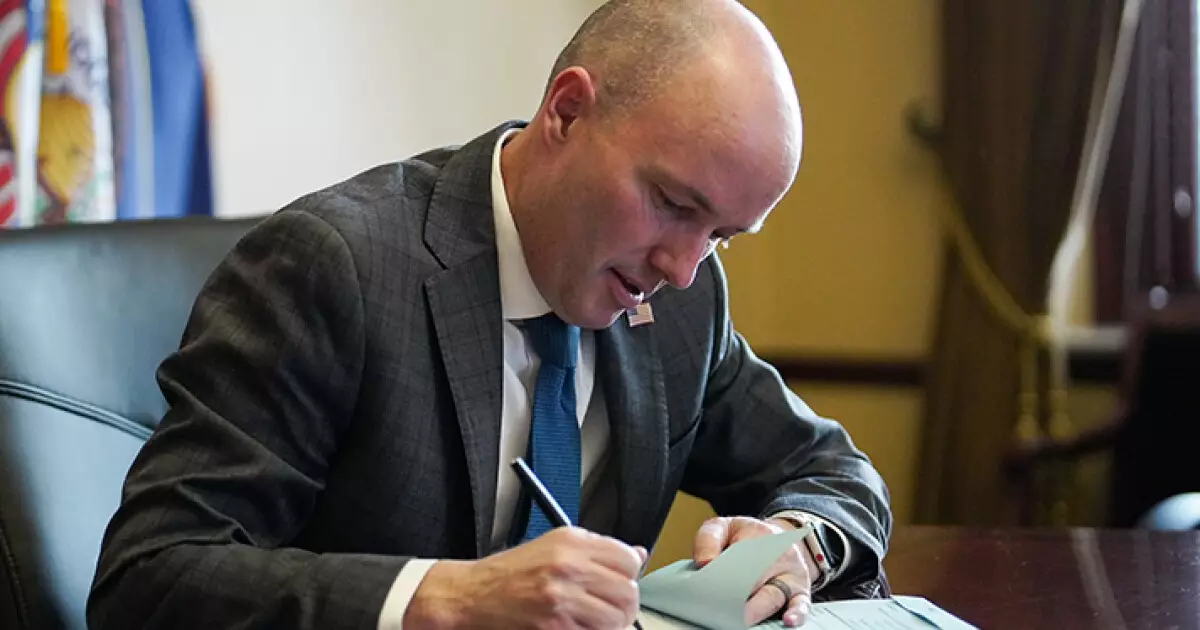Recently, Utah Governor Spencer Cox signed several pieces of legislation, including a measure aimed at preserving the state’s largest coal-fired power plant beyond its scheduled shutdown in 2025. Despite concerns raised by the Intermountain Power Agency (IPA), Cox remains optimistic about the future of the plant. However, IPA’s General Manager, Cameron Cowan, expressed reservations about the potential risks associated with the legislation, particularly in relation to bonds sold by the agency for a new facility. The implications of this decision on the state’s energy sector remain unclear, with Moody’s Ratings and Fitch Ratings declining to comment on the matter. The uncertainty surrounding the fate of the power plant underscores the complex interplay between economic, environmental, and political considerations in Utah.
In addition to the power plant legislation, Governor Cox also approved funding measures related to stadium financing and sports team recruitment. The efforts to attract professional hockey and baseball teams to Salt Lake City involve substantial financial commitments, with up to $900 million allocated for a Major League Baseball stadium and additional bond issuance for arena construction or remodeling. While these initiatives could enhance the city’s sports infrastructure and economic development, questions remain about the long-term viability and sustainability of such investments. The push to expand Utah’s professional sports presence reflects broader trends in urban development and entertainment industry dynamics.
Moreover, recent legislative actions in Utah include limits on local lease revenue bonds and personal income tax cuts. The imposition of a cap on lease revenue bond issuance by local governments and school districts could have significant implications for public infrastructure projects and educational funding. The reduction of personal income tax rates, while aimed at stimulating economic growth, raises concerns about the state’s revenue streams and budget priorities. As Utah grapples with competing demands for public resources and services, policymakers must navigate complex trade-offs and decision-making frameworks to ensure fiscal stability and social equity.
Furthermore, a proposed constitutional amendment on the November ballot seeks to reallocate income tax revenue from education to other state purposes. While proponents argue that this change would address budgeting challenges and enhance flexibility in resource allocation, critics, including the Utah Education Association, caution against potential risks to public school funding. The ongoing debate over education finance underscores broader tensions between competing policy objectives and institutional obligations. Governor Cox’s endorsement of the constitutional amendment reflects divergent perspectives on the role of earmarked funds in shaping public finance priorities.
In light of rising housing costs and affordability concerns, Governor Cox has prioritized housing policy as a key component of Utah’s economic future. The establishment of the Utah Homes Investment Program signals a commitment to expanding affordable housing options and supporting homebuyers in the state. By redirecting funds from transportation initiatives to housing subsidies, the government aims to address housing shortages and promote community development. The intersection of housing policy, economic development, and social welfare programs highlights the complex challenges facing Utah’s residents and policymakers in an era of rapid urbanization and demographic shifts.
Ultimately, the recent legislative developments in Utah reflect a nuanced interplay of economic, social, and political factors shaping the state’s policy landscape. From energy infrastructure and sports investments to tax reform and housing affordability, the decisions made by Governor Cox and state lawmakers have far-reaching implications for Utah’s future trajectory. As stakeholders and citizens engage with these policy changes, critical analysis and public discourse are essential to ensuring accountability, transparency, and equity in governance. Utah’s legislative agenda exemplifies the complexities and contradictions inherent in modern governance, underscoring the need for robust civic participation and informed decision-making in a dynamic and interconnected society.

